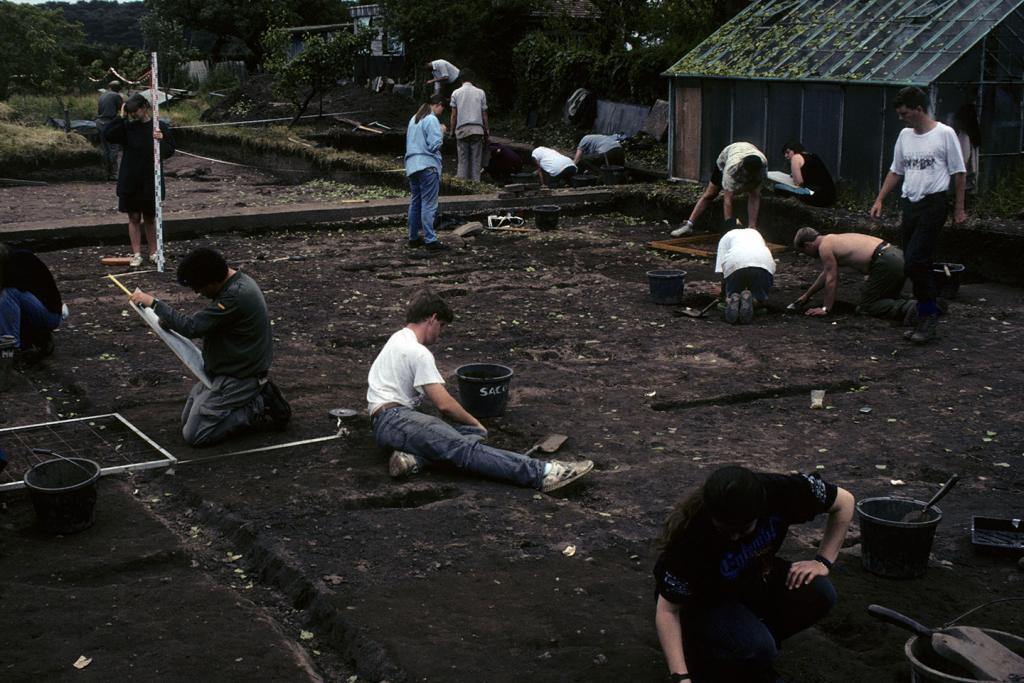
Irby archaeology collection
This group of finds were excavated, along with thousands more, at an archaeologcial site in Irby, Wirral. They represent the long history of human activity on the site from the Mesolithic (around 7,800-4,000BC) to modern periods. The Romano-British period is especially well-represented on this site.
A near-complete Romano-British pot was found in a garden in Irby during the Second World War, when local people were ‘digging for victory’. This was stashed in a dried milk tin until the 1980s when it was shown to archaeologists from National Museums Liverpool.
Archaeologists visited the garden, where building works were underway for an extension, and saw the remnants of a Romano-British ditch. The site owner invited the archaeologists to excavate in her garden. Several seasons of excavations followed (1987-1996), gradually spreading over several neighbouring gardens. These excavations revealed evidence for the site being in use from the Mesolithic to the modern periods, and with particularly important evidence for the Bronze Age (around 1500-1100BC), Roman (2nd-4th centuries AD) and Viking (10th-12th century AD) periods in this region.
In the Romano-British period of habitation a group of roundhouses were built and rebuilt in a small settlement. Finds from this phase of the site tell a story of everyday Romano-British life – farming, grinding corn, and making clothes. And the influence of the Roman empire is felt with the presence of imported ceramics, coins, and a few luxury items.
More than 10,000 finds have been excavated at Irby, some of the highlights from the collection are featured here.
